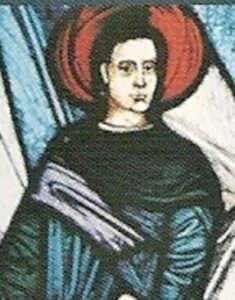Priest
We honor today the memory of a friar whose holiness of life was clear to his contemporaries, though the details of his life are not known to us. To this extent he represents many holy men and women of our Order and of the Church at large whose names, though lost in time, are nonetheless recorded in the Book of Life.
He also represents more specifically those many holy friars who, over many years, were members of the contemplative monastery of Lecceto.
Anthony Patrizi was born in Siena sometime in the thirteenth century, although the exact date and year are not known. He belonged to the monastery of Lecceto, renowned for its emphasis on contemplative life and the holiness of many of its members. It was here that other well known friars such as Clement of Osimo, Agostino Novello and William Flete also lived at various times. Anthony died in 1311 in our friary at Monticiano where he was staying while on a visit to Friar Peter of the hermitage of Camerata.
In the book A Brief Life of Some Hermit Friars by the Anonymous Florentine, the story of Anthony’s death is recounted. It tells of how, on the night on which he died, caregivers of an elderly and gravely ill couple who lived nearby, were looking out a window of the sick couple’s house which faced the monastery. They saw coming from the monastery a brilliant light that appeared to touch the sky. At first they thought that the monastery had caught fire, but as they watched they saw that it was not a fire, but that there must be in the monastery someone whose holiness touched the heavens.
The sick couple also came to the window, saw the light, and began to pray, asking that this unknown holy person would heal them of their illness. Immediately they were restored to health. They went to the monastery, told the friars what had happened and asked to see the holy man. The friars went to the room of their guest and discovered that Anthony had died. Pius VII confirmed the cult of Anthony in 1804.
Unfortunately, the details of the lives of many of our brothers and sisters, who in their own time were renowned for holiness, are unknown to us. Nonetheless, the awareness that there has been “a great cloud of witnesses” throughout the ages giving testimony to the validity of the Augustinian way of life continues to be a source of encouragement as well as a challenge to us today. At the same time, the memory of a friar such as Anthony, dedicated to contemplation and the common life, reminds us of essential components of our own vocation.

